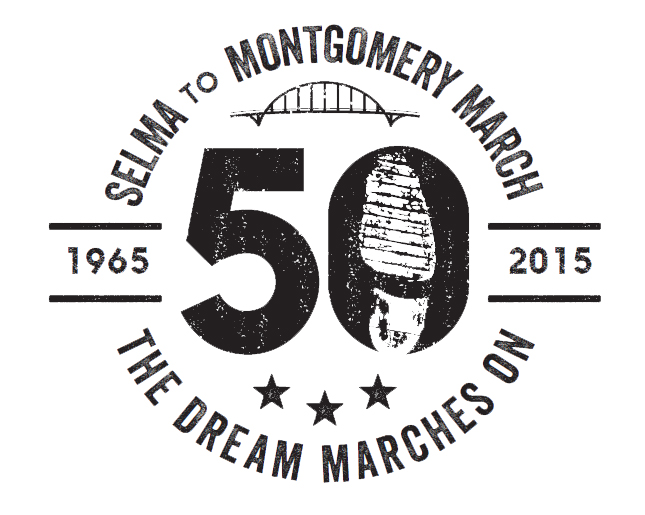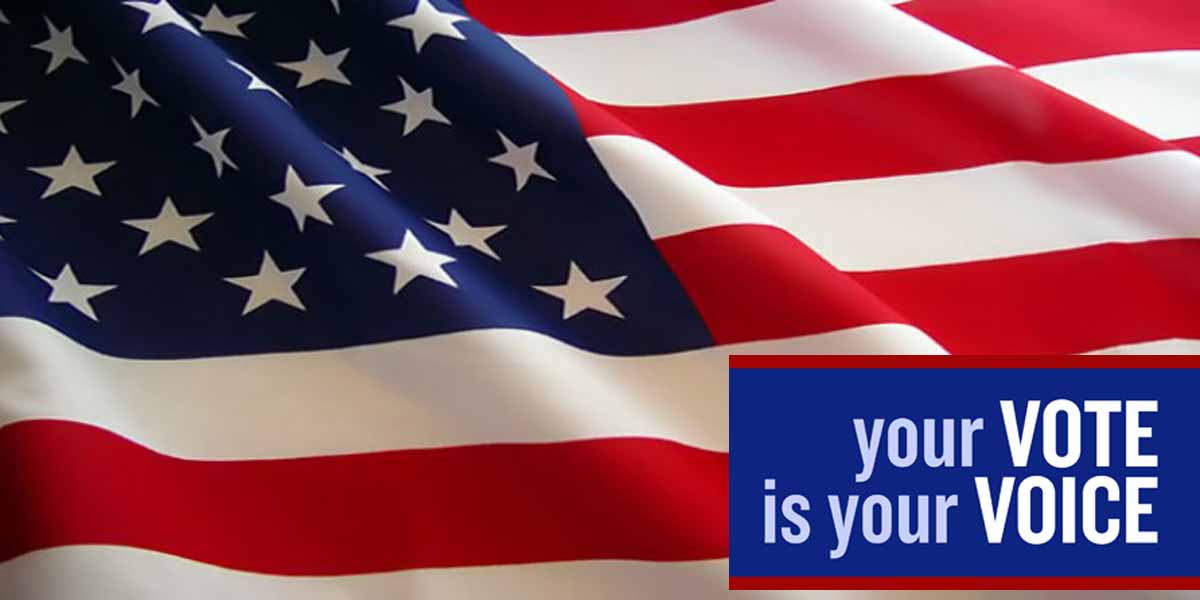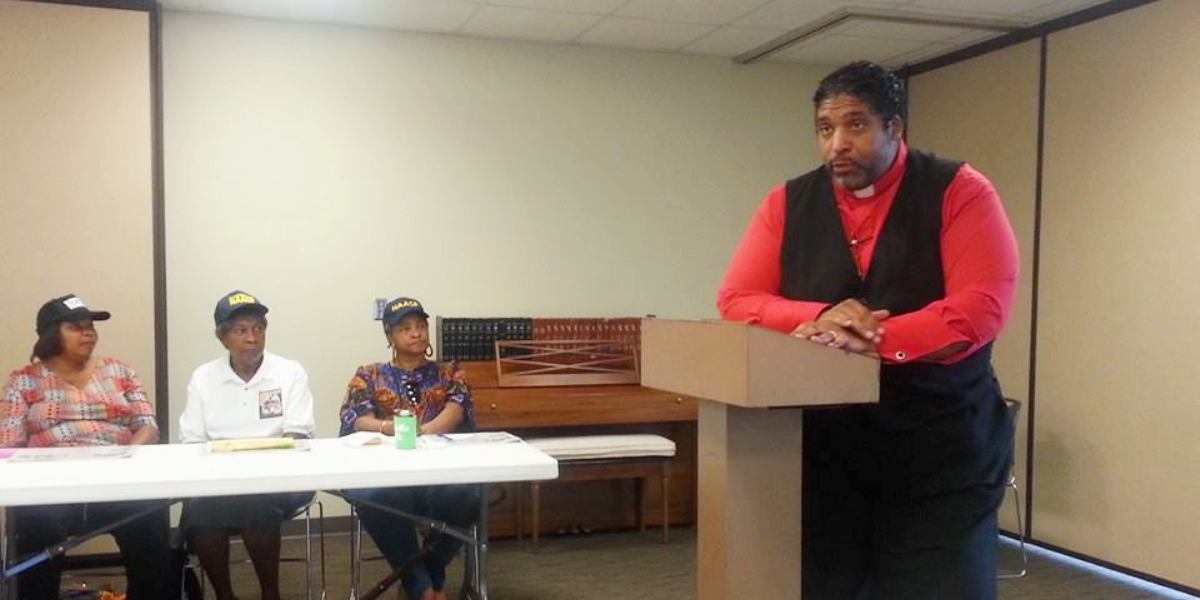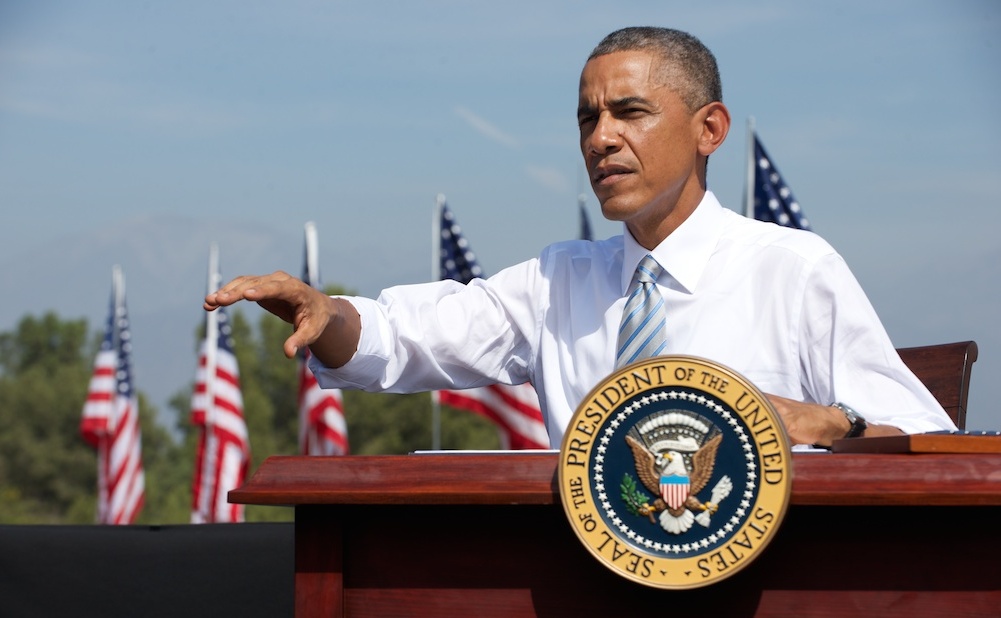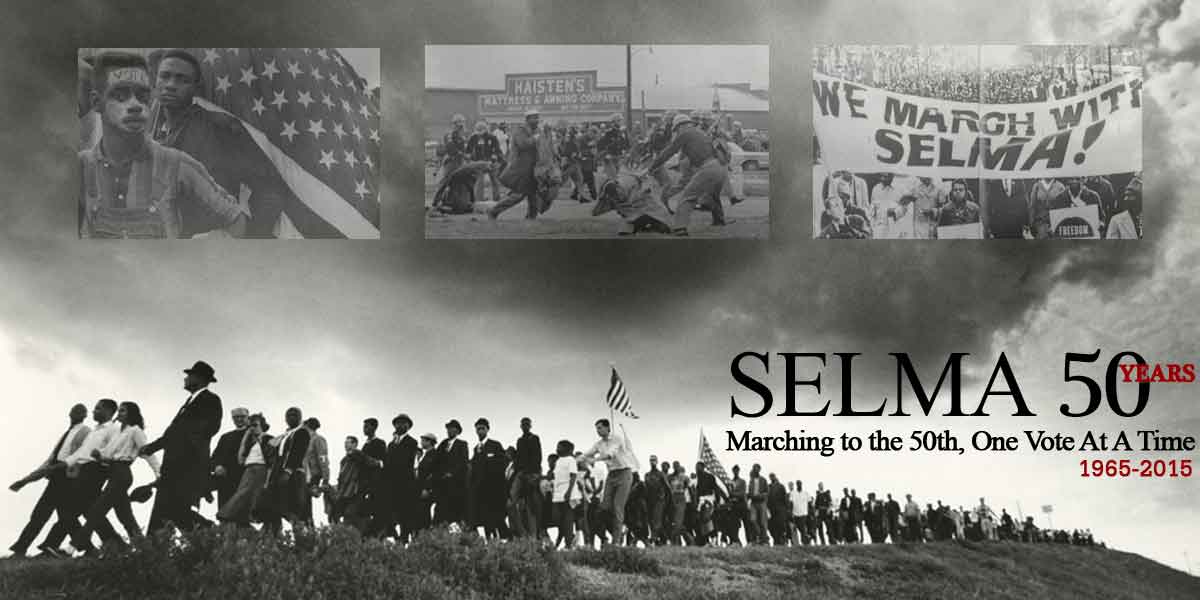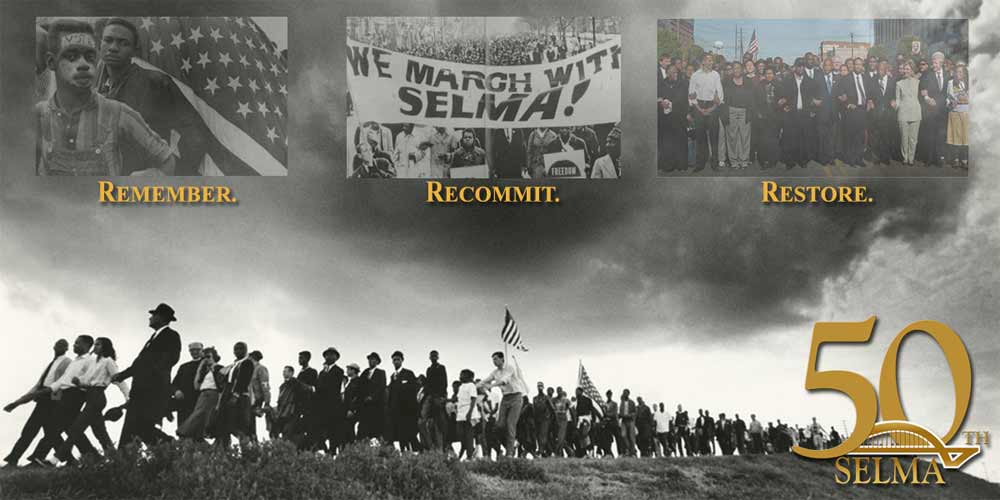Listening to Rev. William Barber II is like a lesson in ancient theology applied to 21st century life. It sounds old, yet feels new. It echoes an ancient struggle between good and evil, though, at times, it’s hard to decipher which is which.
Rev. Barber has a moral handle on what’s right for the people. He’s a voice crying in the wilderness. He’s six-feet-and-three-inches and 300+ plus pounds of righteous indignation, preaching a message of justice and mercy, of personal responsibility and shared accountability. He understands that the moral arc of the universe is bent toward justice, despite what we feel or see, and that in the end, what’s right becomes clear and worth standing for.
And what’s right is basic human dignity — to be treated with respect, to get medical care when it’s needed, to make a living wage that allows people to live free and contribute to the good of the order, to vote in a democratic society without unnecessary restrictions, to live in an environment free from harmful pollutants and dangerous conditions, to choose who to love, to live free from danger and discrimination regardless of race, gender, creed or sexual orientation, among other concerns.
These are the basic concepts of the Moral Monday Movement that Rev. Barber has helped galvanize and lead now for seven years in North Carolina. And for these reasons, the Baptist preacher and president of the North Carolina State NAACP has taken a stand. And he’s inviting any one of like mind to join him.
Moral Monday /Forward Together Movement
The Alabama State NAACP, with other organizations of the SaveOurSelves Movement for Justice and Democracy, have invited Barber to speak in Alabama to  jumpstart what they all see as the 21st-century phase of the continuing struggle for human and civil rights.
jumpstart what they all see as the 21st-century phase of the continuing struggle for human and civil rights.
In his appearance last week, Rev. Barber shared his vision and the lessons he’s learned thus far. “We’ve come to share some of the practices we’ve learned that work. If you all take these and move with them, you’ll see some powerful results. This is not from what we’ve heard, but from what we’ve seen.”
He said he didn’t come to Alabama to lead the Movement, but to remind its people of the historic role that Alabama has played in the first part of the civil and human rights Movement, from the moment in 1955 when Rosa Parks refused to give up her seat on a segregated Montgomery bus to a white man.
“It’s your moment. You have to lead this,” he said during a prayer breakfast held in the annex of Dexter Avenue Baptist Church, where Dr. Martin Luther King Jr was once the pastor. About 100 people from many organizations around the state including members of NAACP units, people of many races, faiths and cultures listened to him break down the key components of his growing Movement.
“Nobody can come from (Washington) D.C. or New York to lead this because movements begin from Montgomery up, they don’t come from DC down. I’m just glad to be an encourager this morning and I’m glad to be a part of this beginning.”
As Alabama’s own Moral Monday/Forward Together movement begins, Barber said, it’s important to understand the significant historical connections between the past and the present.
He noted that his meeting with leaders in the new moral movement came seven days after the Sept. 15, 1963, anniversary marking the Sixteenth Street Baptist Church bombing that killed four girls.
“They were killed to make people quit, but we didn’t quit. And if we didn’t quit when they blew up our babies in Sunday school, surely we can’t quit when there are a few extremists in the State of Alabama,” Rev. Barber said. “If the black folk and white folk in Alabama came together then, after they blew up children, and won . . . then there’s no way in the world we should allow extremists today to make us run. We ought to pray about that kind of courage.”
 Today, governors and legislators in Alabama, North Carolina and other states, “the native lands of poverty and racism,” he said, are foolishly following extreme Tea Party philosophies, implementing unjust laws and blocking or reversing laws they don’t like, to the detriment of the people they’re sworn to govern justly.
Today, governors and legislators in Alabama, North Carolina and other states, “the native lands of poverty and racism,” he said, are foolishly following extreme Tea Party philosophies, implementing unjust laws and blocking or reversing laws they don’t like, to the detriment of the people they’re sworn to govern justly.
“It’s like they’re doing all the things Dr. King talked about in The March on Washington, but with a 21st-century twist, governors whose lips are dripping with the words interposition and nullification. That’s what you see happening all over again today, but in a new form,” Rev. Barber said.
The reason the movement has to be based on morality and not race is because this crowd of current-day leaders are so extreme that they are hurting their own people. “You’re not just hurting black people. When you deny 400,000 people Medicaid expansion, you’re hurting Republicans. You’re hurting white people. You’re hurting veterans. The more the movement lifts up those facts, Barber said, the more people will be drawn into the cause.
“So that’s why a moral movement — not a left movement, not a right movement, not Democrat or Republican movement but a moral movement — is needed. You need to pray about that and keep that focus.”
He told the group not to worry because their numbers were few and their chances at undoing extreme laws in a red state seem impossible.
Barber said it took seven years to grow the movement into the force it’s becoming. And it started before extreme Tea Party and GOP policymakers took control of North Carolina’s government.
At the first “Forward Together” Moral Monday rally, only 17 came – 7 pastors, 10 laypeople, including a woman with cerebral palsy. The governor and legislators dismissed the group and the movement; the newspapers laughed at them, he said.
The small band of 17 didn’t have much of a plan in those first few days, he said, except they knew they would likely be arrested. They went into the North Carolina State Capitol singing, praying and preaching. They were arrested for being too loud. “We didn’t go to jail just to go to jail, but for refusing to give up our constitutional rights to protest.”
The next week, 34 people showed up. The next 68, and by the end of the summer, 25,000.
Today, he says, most of the papers that used to ridicule Moral Monday rallies are praising them because the movement’s coalition is deep and broad, with and many races, creeds and colors and even sexual orientation, coming together. The movement went from 17 being arrested to 1,000 people being arrested, from 1,000 showing up to its rallies to almost 80,000 showing up a year later.
And now it’s spreading to 12 states, and the courts are starting to rule to protect the constitutional rights of the protestors.
He cited the Moral Monday Movement in Georgia. After four weeks of civil disobedience (there were 13 weeks in NC), the Moral Monday movement there had so awakened the consciousness of the state that its coalition members registered new 170,000 Georgia voters.
“Moral Monday is not a rally, and then you have another one a year later. It’s a movement. If you start and stay — and stick — then you’re going to see results,” Barber said “If you stay long enough, God will work. You can’t do it one time; you’ve got to stay there. To see miracles, you’ve got to hang in there”
Prayer Changes Things
Rev. Barber punctuated every point he made with the importance of prayer and intertwined the Movement’s message with biblical principles.
“If we’re going to have governors and legislators who’re going to crucify the sick by denying their healthcare, and crucify voting rights, and crucify the poor by not  getting high-paying jobs — and every crucifixion demands a witness — then make the world see the crucifixion and bring attention to it. And you will wake up the consciousness of the people. Pray about that.”
getting high-paying jobs — and every crucifixion demands a witness — then make the world see the crucifixion and bring attention to it. And you will wake up the consciousness of the people. Pray about that.”
He said people are tired of debates between conservatives and liberals, democrats and republicans. They hunger for a morality that calls wrong wrong, no matter which side it’s on. That hunger is re-igniting the fight in older foot soldiers who thought their work was done and they could bask in the glow of golden successes from 50 years ago. “I see the gray hair around here,” Barber said of the mostly older crowd.
And it will also pull in the younger generation who are disaffected with the status quo because of polarizing racial discord, police brutality, disregard for the environment, corporate greed, continuing poverty and economic disparities.
“Pray about that,” he said.
The moral center has to come from clergy (many in Alabama have yet to embrace the new movement) who must be willing to take a stand.
 “And when you stand, make them arrest you in your vestments.” He said one of the officers who arrested the clergy asked in an angry tone why they were coming into the Legislature dressed like that. “We said, ‘We’re prophets! We’re working. We’re on call. We’re doing pastoral care for the nation.”
“And when you stand, make them arrest you in your vestments.” He said one of the officers who arrested the clergy asked in an angry tone why they were coming into the Legislature dressed like that. “We said, ‘We’re prophets! We’re working. We’re on call. We’re doing pastoral care for the nation.”
This is the affect being arrested in ministerial garb can have on the situation, as Rev. Barber related about one of his arrests:
“One of the arresting officers, when we got on the elevators, he said, ‘Man, I’m going to hell.’ I said you won’t, if you do what’s right. By the way, we’re fighting for you to get better wages.’
So the elevator doors closed and the other officer pushed the down button. It shook, the doors opened, and we were still right there on the same floor. The guy said, ‘I know we’re going to hell!’ So then, he pushed it again and the doors closed, the elevator shook again, and we were still there. The people starting hollering, ‘Let ’em go, let ’em go.’
The officer said, “Rev. Barber, will y’all please let the elevator go down!?’ So I turned to one of my friends who is an A.M.E. Zion preacher, and I said, “Talk to Jesus about it.’ And he said, ‘Jesus, release the elevator!’
The doors closed, the man pushed down, the elevator went down, and the guy said, ‘We all going to hell!!!” When we got on the bus, that guy took the cuffs off and everything. And then he marched with us two weeks later.”
Rev. Barber said confronting government officials where they do the people’s work and facing possible arrests are key components of the Movement. “Go in that Legislature and claim it as the people’s house. You built that house; it’s your house! Civil disobedience has to be a part of it, because they don’t care about rallies,” he said. “They’ll watch you rally and keep right on. You’ve got to be willing to put your bodies on the line.”
Another key component of success is the Movement’s diversity, that it’s more than white verses black.
“You need whites to get up and talk about racism and blacks to get up and talk about classism. It confuses them,” he said. “When you stand at the podium, always  stand as a group.” The coalition also needs brave and brilliant lawyers willing to bring lawsuits on behalf of those negatively impacted by extreme policies, like a negligence lawsuit on behalf of someone who died because of the governor’s refusal to expand Medicaid.
stand as a group.” The coalition also needs brave and brilliant lawyers willing to bring lawsuits on behalf of those negatively impacted by extreme policies, like a negligence lawsuit on behalf of someone who died because of the governor’s refusal to expand Medicaid.
“And pray about voting. Not about winning, but voting. Increase the numbers of voters so that they understand you’re not going anywhere,” Rev. Barber said.
And then lastly, he said, look for strange things to happen.
After the 14th week of organized protests, he said the coalition got a call about organizing Moral Monday in Mitchell County, a lily-white enclave since the 1920s, when its residents drove out all blacks residents. It’s consistently voted Republican for decades.
His initial response to the call was “hell no!” (“Y’all pray for me,” he added, “but that’s what I said at the time.”) But a white Methodist minister convinced him to go. “The long and short of the story is, the Republican party chair renounced the Tea Party and resigned his office,” Rev. Barber said. “But you’re not going to see that with one rally, but if you stay at it, you will.”
At the SOS-organized weeklong Jericho Walk (a Moral Monday Movement event) around the State Capitol in August, seven people were arrested. Rev. Barber said that number can grow to 70, then 140 or more, if Alabama Moral Monday leaders focus their attention on Montgomery during the legislative session.
The world is waiting on Alabama, Rev. Barber said.
“When Alabama stands up, when you stand up long enough and strong enough, you have the historical anointing to inspire the rest of the country. And it’s your time.”
Watch our video of Dr. Barber’s speech at the Alabama State Capitol on Sept. 22, 2014.


